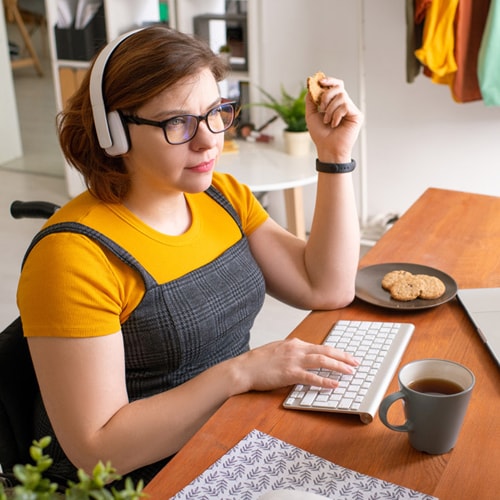So, with the lockdown that occurred and now with learning from home instead of from the classroom, how many times have you headed to the kitchen cupboard for a mid-morning or afternoon snack? It might be tempting to keep topping up your beverage while following your online lecture, or to explore all those baking or other culinary skills you've learned over the pandemic, but we all need to consider the risk these habits might be having on our overall caries risk.
Increased frequency of snacking, as well as sugar-containing beverages and snacks, increase your risk for dental caries. (How many sugars do you have in your morning coffee and how many sodas do you drink?) Many of us, especially those of us who are now learning from home, may be succumbing to these harmful habits, So, if that's the case, with an increased caries risk we need to consider additional fluoride in our oral care routine to help prevent dental caries, as recommended by the American Dental Association.
Using a regular fluoride toothpaste during twice-daily brushing may be sufficient protection if you are at low risk for caries, but if you have an increased caries risk according to the recommendations you need extra fluoride. By following the recommendations, you will be helping yourself to extra protection against dental caries. Options in the ADA recommendations include in-office application of 5% sodium fluoride varnish, two to four times per year and daily use at home of a prescription-strength 5,000 ppm fluoride toothpaste. If you unfortunately already have early caries lesions, this prescription-strength fluoride toothpaste is also recommended to help halt and reverse these.
Together with this, we need to consider reducing the behaviors and habits that are risk factors for caries, including those sugary beverages and frequent snacks. We can replace these and help reduce our likelihood of dental caries with alternatives such as:
- Drinking water or milk between meals
- Drinks without added sugars
- Tea and coffee without sugar - and if you need to sweeten these, then consider non-cariogenic sweeteners instead
- Healthier snacks, e.g., cheese or vegetables
The current challenge is not just a challenge that dental students are facing. The potential for an increased caries risk because of changes in habits while learning or working from home, and the resulting need for extra fluoride, can be translated to our own patients to help empower them to reduce their caries risk too

